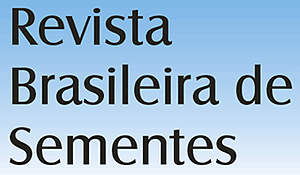The use of unconventional sources of K for plants has been widely studied, but the effects of alternative materials on physiological seed quality are still relatively unknown. The objective of this study was to evaluate the physiological quality of soybean and wheat seeds after using different potassium sources in a crop succession. The experimental design was a completely randomized block with four replications. Treatments consisted of three K sources (KCl, alkaline rock and ground phonolite, with 58%, 11% and 8.42% of K2O, respectively) applied in four doses (0, 25, 50 and 100 kg K2O ha-1). Potassium doses were applied in soybean and their residual effects were evaluated on the following wheat crop. Soybean and wheat seeds were evaluated immediately after harvesting by tests for moisture content, seed weight, germination, first count, electrical conductivity, seedling length and seedling dry matter. Soybean plants fertilized with alternative sources of K produced heavier seeds with a lower coat permeability compared to KCl; the physiological quality of soybean seeds and the weight of wheat seeds increase due to higher K2O doses, independently of their source.
Glycine max; Triticum aestivum; germination; potassic rock; residual effects





